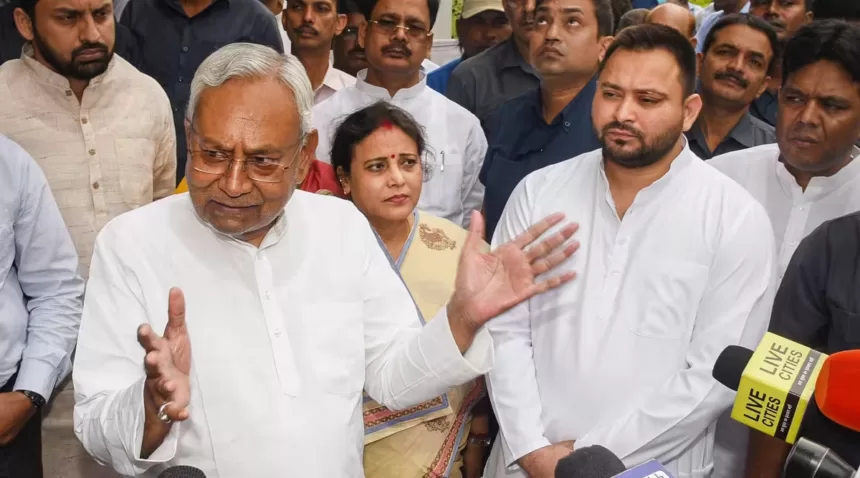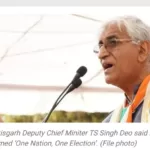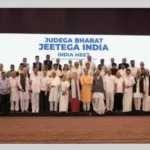India, known for its cultural diversity and vibrant traditions, has long been celebrated as the land of festivals. From Diwali’s dazzling lights to Holi’s riotous colors and Eid’s communal feasts, the country’s festivals are a testament to its rich tapestry of cultures and religions. However, a recent controversy has cast a shadow on this celebration of diversity, as the Bihar Education Department’s decision to reduce festival holidays has sparked a political and cultural debate. In this article, we delve into the heart of the matter, exploring the festival landscape in India, the controversial decision by the Bihar government, and the accusations of “anti-Hindu” bias by the Bharatiya Janata Party (BJP). Ultimately, we aim to shed light on the delicate balance between education and culture in a country where festivals hold a special place in the hearts of millions.
The Festival Landscape in India
India’s festival calendar is a kaleidoscope of colors, traditions, and faiths. It transcends geographical and religious boundaries, celebrating the unity amid diversity that defines the nation. Festivals in India are not just events; they are an integral part of people’s lives, reflecting their beliefs, heritage, and values. Whether it’s the grandeur of Diwali, the spiritual fervor of Chhath Puja, or the communal harmony of Eid, each festival contributes to the tapestry of Indian culture.
These festivals serve as a unique opportunity for people of different backgrounds to come together, share joy, and foster a sense of unity. They provide a break from the routine, allowing individuals to reconnect with their roots and celebrate their identity.
The Bihar Education Department’s Controversial Decision
In a bid to enhance the quality of education and meet the requirements set forth by the Right to Education Act 2009, the Bihar Education Department issued a notification to reduce the number of festival holidays in schools between September and December 2023. This move has been met with mixed reactions, especially considering the festivals affected by this decision, including Durga Puja, Diwali, Chhath Puja, Raksha Bandhan, Teej, Jiutiya, Vishwakarma Puja, Janmashtami, and Guru Nanak Jayanti.
The Education Department’s rationale for this decision stems from the need to maintain a consistent academic calendar. It emphasizes that elections, examinations, festivals, and natural calamities often disrupt the school year, leading to variations in school closures across districts. To adhere to the Right to Education Act’s mandate of a minimum of 200 working days in primary schools and 220 days in middle schools, the reduction of festival holidays was deemed necessary.
The BJP’s Accusations of “Anti-Hindu” Bias
The controversy surrounding this decision has been further fueled by the Bharatiya Janata Party (BJP), which has accused the Bihar government, led by Nitish Kumar, of practicing “politics of appeasement.” Prominent BJP leaders, including Union Minister Giriraj Singh and Bihar BJP State President Samrat Choudhary, have voiced their concerns, claiming that the decision reflects an “anti-Hindu” bias.
Singh’s statement on social media, where he expressed the fear of Sharia law being implemented and a potential ban on celebrating Hindu festivals, highlights the intensity of the debate. This accusation has led to a polarizing discourse on the balance between cultural sensitivity and educational priorities in India.
Balancing Education and Culture
The heart of this controversy lies in the delicate balance between education and culture. While festivals hold immense cultural, religious, and social significance, ensuring a consistent academic calendar is vital for students’ education. The Bihar Education Department’s decision to reduce festival holidays is an attempt to strike this balance.
Schools often grapple with disruptions caused by elections, examinations, and various festivals. This disrupts the academic flow, impacting the quality of education delivered. To maintain educational standards and adhere to the Right to Education Act, the Education Department has decided to curtail holidays. It’s important to recognize that this decision aims to provide students with the uninterrupted education they deserve.
Respecting Cultural Diversity
In a diverse country like India, where cultural traditions vary from state to state and even within regions, it’s crucial to respect and celebrate this diversity. Diwali, Chhath Puja, Eid, and other festivals hold deep-rooted significance for various communities. These celebrations are more than just holidays; they are an expression of cultural identity and a testament to India’s pluralistic heritage.
Rather than viewing the reduction of holidays as an attack on any particular religion, it should be seen as a pragmatic approach to balance education and culture. Encouraging dialogue and cooperation among all stakeholders, including political leaders, education authorities, and the community, is essential to finding a middle ground that respects cultural diversity while prioritizing education.
The RTE Act and Its Implications
The Right to Education Act 2009, which aims to provide quality education to all children, plays a significant role in this controversy. Section 27 of the RTE Act prohibits the deployment of teachers for non-educational purposes. In the past, teachers were often used for tasks like caste-based surveys, leading to school closures and disruptions to vital programs like mid-day meals. By reducing festival holidays, the Education Department aligns with the RTE Act’s provisions, ensuring that teachers can focus on their primary responsibilities of teaching and providing quality education.
Conclusion
In the midst of the festival fervor that engulfs India, the controversy surrounding the reduction of festival holidays in Bihar raises important questions about balancing education and culture. While festivals are an integral part of the nation’s identity, ensuring quality education is equally vital. It is imperative that all stakeholders engage in constructive dialogue to find a solution that respects India’s cultural diversity while prioritizing the academic needs of its students. In a country where festivals bind communities together, finding the right balance becomes an essential endeavor for the progress and unity of the nation.






